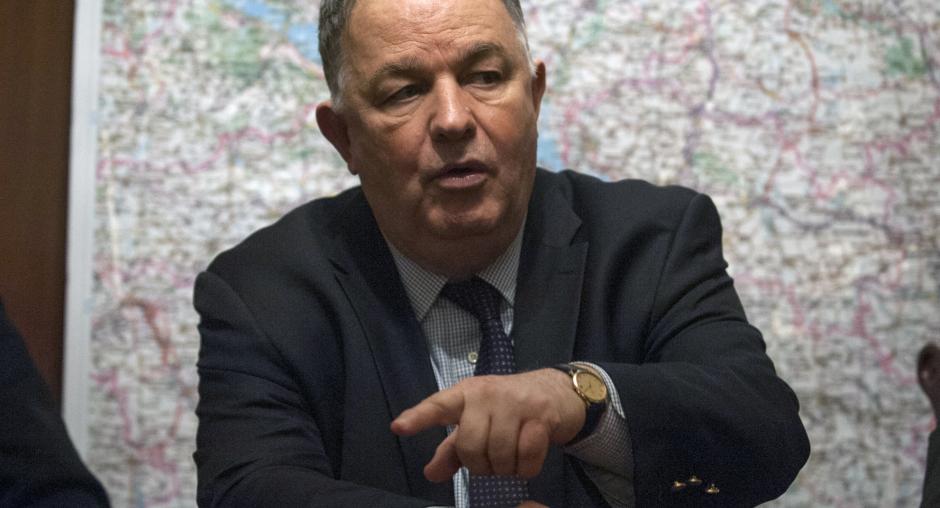OSCE Chief Monitor calls for prioritization on safety of civilian population in eastern Ukraine as winter draws near

KYIV, 9 November 2017 – The plight of the civilian population of eastern Ukraine, especially now with the onset of winter, demands immediate attention and action, said Ertugrul Apakan, the Chief Monitor of the OSCE Special Monitoring Mission to Ukraine (SMM), today in Kyiv.
Thousands of people are without electricity, gas and water, as the ongoing conflict continues to take a heavy toll on critical civilian infrastructure criss-crossing the contact line, Ambassador Apakan warned.
Highlighting that the OSCE SMM regularly monitors and facilitates ‘windows of silence’, co-ordinated by the Joint Centre for Control and Co-ordination, to enable repairs and maintenance of critical civilian infrastructure, the Chief Monitor, said that such work, however, cannot keep up with the scale of damage and destruction, and is often delayed by the failure of the sides to provide the required security guarantees.
“The sides expressed readiness to establish safety zones around two water installations; they have committed to a ceasefire, to the withdrawal of heavy weapons, to the disengagement of forces and hardware and to de-mining,” Apakan said. “The continued delay to fully implement this directly impacts on civilian lives.”
Ambassador Apakan underlined the need to ensure access for humanitarian organizations delivering food, medicine and other basic necessities. In villages like Pikuzy in Donetsk region and Novooleksandrivka in Luhansk region, residents have been largely cut off from the outside world, and those seeking to help have been largely prevented from doing so, he said.
“There are security concerns and measures but these can never be at the expense of ordinary people,” the Chief Monitor said. He added that the agreed Minsk Package of Measures of February 2015 stipulates safe access, delivery, storage, and distribution of humanitarian assistance to those in need. He underlined the urgent need to open additional entry-exit checkpoints, and to repair the wooden ramps across the destroyed Stanytsia Luhanska bridge, the only point where people can cross the contact line in Luhansk region.
Ambassador Apakan also noted the resilience of the civilian population living in areas most affected by the conflict. With the conflict now in its fourth year, people had maintained their dignity and self-respect, he said.
“They want to be with their families and be able to provide for them, to work, live and move freely in peace; they want the violence to end.”
